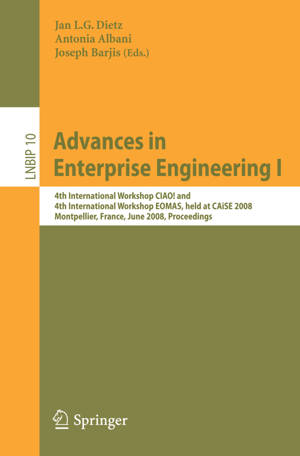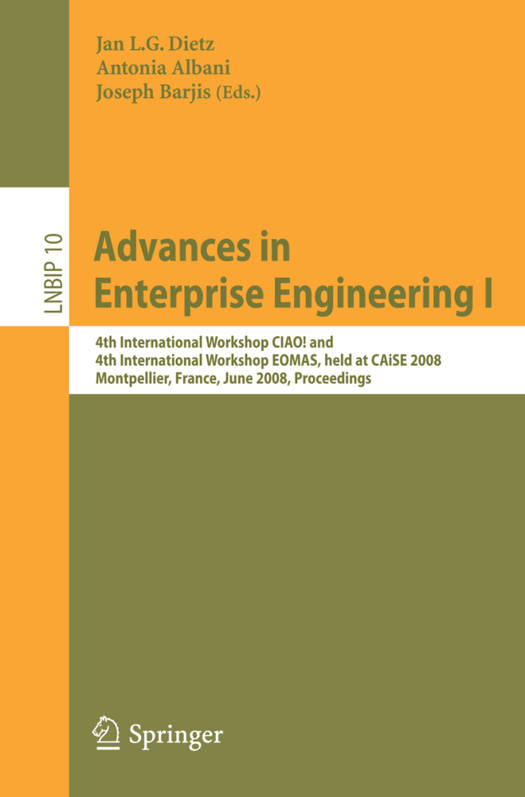
- Afhalen na 1 uur in een winkel met voorraad
- Gratis thuislevering in België vanaf € 30
- Ruim aanbod met 7 miljoen producten
- Afhalen na 1 uur in een winkel met voorraad
- Gratis thuislevering in België vanaf € 30
- Ruim aanbod met 7 miljoen producten
Advances in Enterprise Engineering I
4th International Workshop Ciao! and 4th International Workshop Eomas, Held at Caise 2008, Montpellier, France, June 16-17, 2008, Proceedings
€ 82,45
+ 164 punten
Omschrijving
The expectation for the future of the 21st century enterprise is complexity and agility. In this digital age, business processes are scattered not only throu- out the labyrinth of their own enterprises, but also across di?erent enterprises, and even beyond the national boundaries. An evidence of this is the gr- ing phenomenon of business process outsourcing. Increasing competition, higher customer demands, and emerging technologies require swift adaptation to the changes. To understand, design, and engineer a modern enterprise (or an enterprise network) and its interwoven business processes, an engineering and systematic approach based on sound and rigorous theories and methodologies is necessary. Along with that, a paradigmshift seems to be needed for addressing these issues adequately. An appealing candidate is to look at an enterprise and its business processes as a social system. In its social setting, an enterprise and its bu- ness processes represent actors with certain authorities and assigned roles, who assume certain responsibilities in order to provide a service to its environment. The need for this paradigm shift along with the complexity and agility of modern enterprises, gives inspiration for the emerging discipline of Enterprise Engineering. For the study of this socio-technical phenomenon, the prominent tools ofModeling andSimulation play a signi?cant role.Both (conceptual) m- eling and simulationare widely used for understanding, analyzing, andengine- ing an enterprise (its organization and business processes).
Specificaties
Betrokkenen
- Uitgeverij:
Inhoud
- Aantal bladzijden:
- 195
- Taal:
- Engels
- Reeks:
- Reeksnummer:
- nr. 10
Eigenschappen
- Productcode (EAN):
- 9783540686439
- Verschijningsdatum:
- 30/05/2008
- Uitvoering:
- Paperback
- Formaat:
- Trade paperback (VS)
- Afmetingen:
- 157 mm x 231 mm
- Gewicht:
- 317 g

Alleen bij Standaard Boekhandel
+ 164 punten op je klantenkaart van Standaard Boekhandel
Beoordelingen
We publiceren alleen reviews die voldoen aan de voorwaarden voor reviews. Bekijk onze voorwaarden voor reviews.







